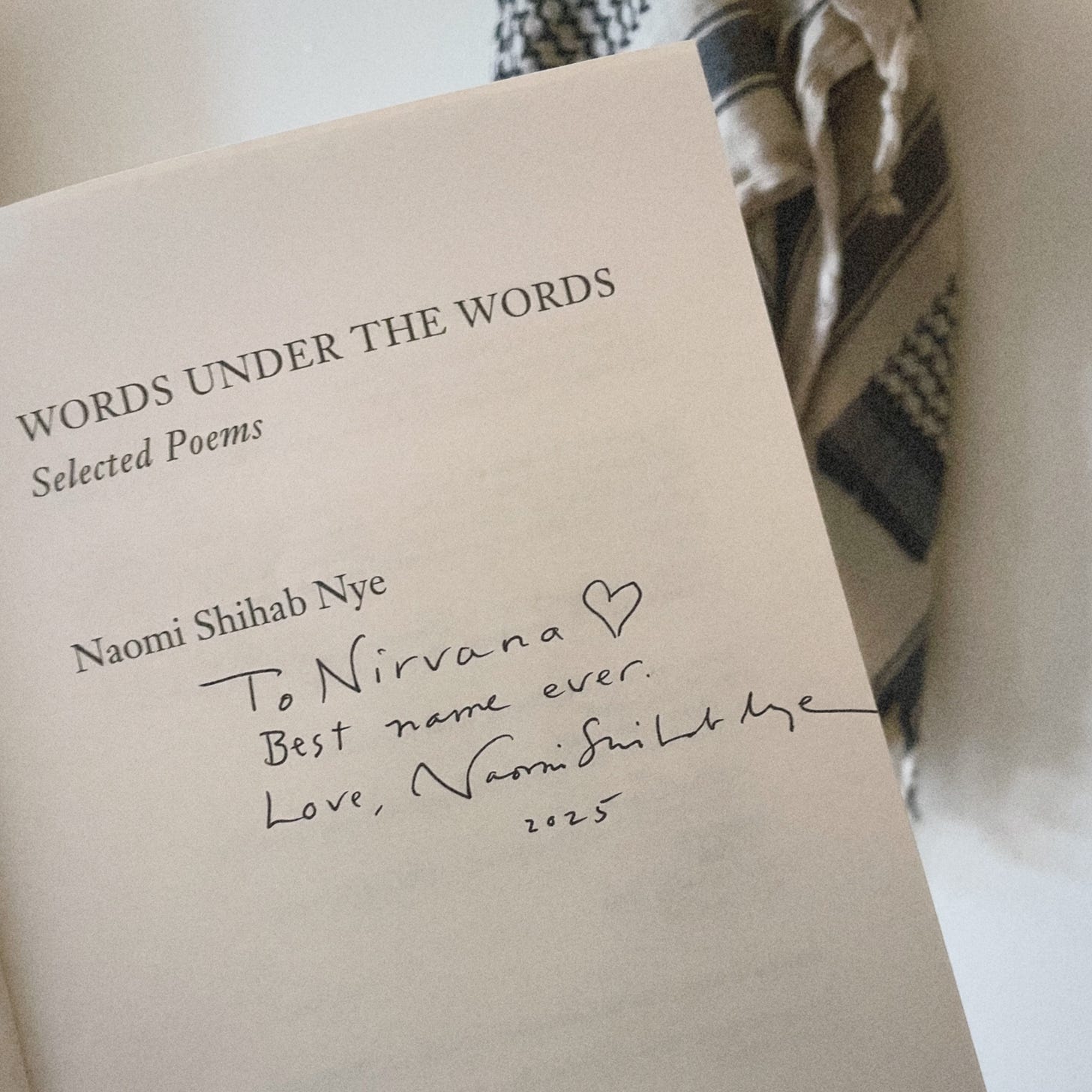Dispatch from a poetry workshop with Naomi Shihab Nye
February 3, 2025
I walked away dreaming about the orientation of maqluba, the inside of a fig, the flavor of well water.
Naomi Shihab Nye has a commanding, powerful energy, and at the same time, she’s incredibly down-to-earth and familiar.
The prolific, award-winning Palestinian American writer came to my university for a campus visit in February, and I was able to spend some time listening to her speak in a couple different contexts during her visit. One evening, Nye led a poetry workshop for some students. Both undergraduate and graduate students showed up, as well as some faculty and staff. Nye mostly spoke about what writing means to her and what her writing practices have looked like throughout her life, and she gave us some prompts to work with and come back to as we keep writing.
The workshop inspired me to not only write more poems but also to write about the experience of writing poems with Nye in this context, which is what I did.
We gathered around the big, welcoming tables in El Centro at dusk to both shelter from the cold and listen to Palestinian American writer Naomi Shihab Nye speak about survival—the kind of survival grounded in poetry. Nye was generous enough to tell us about some of the personal writing habits she's cultivated over time that have allowed her to find a sense of peace in the midst of seemingly constant catastrophes.
One of these habits is writing down three lines at the end of every day. These can be three details or memories about your day. Do this for one month. Don't re-read the lines after you've written them. Then, at the end of the month, go back and re-read them. You'll see that you have collected roughly ninety details. Now, you can begin stringing these details together or embedding them in other writings. This practice reminded me of Sandra Cisneros's theory of writing “buttons” as a way to push through writer's block. Cisneros famously described her novel House on Mango Street as a “jar of buttons.”
Nye's words held us in that room and also held within them a kind of a profound simplicity. She even read to us: poems by Fadwa Tuqan, Lawrence Ferlinghetti, Jim Harrison and Ted Kooser. Her deep voice—smooth yet strong—projected incisive aphorisms about grief and what it looks like to keep going, to keep writing. We wrote food poems while shying away from the circulating cheese platter. Some were even brave enough to share their poems. I walked away dreaming about the orientation of maqluba, the inside of a fig, the flavor of well water.




Beautiful 🕊️